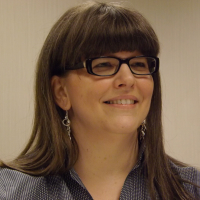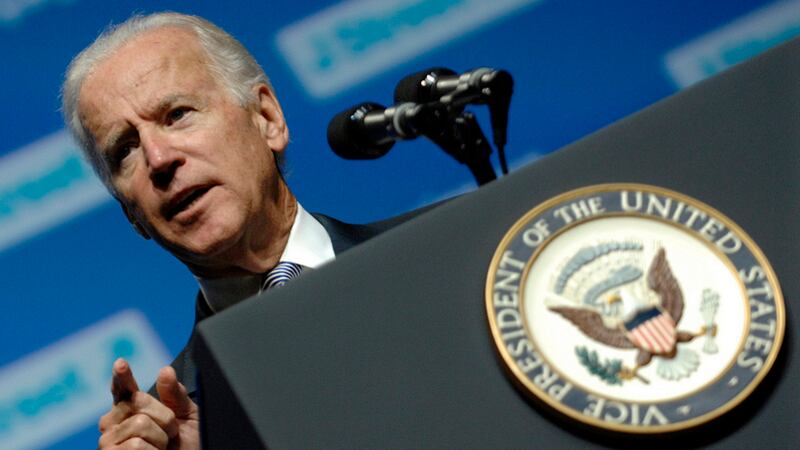J Street held its annual Chicago fundraiser last Friday, and the room was fairly packed, in no small part by politicians: Senate Majority Whip Dick Durbin and Senator Tammy Baldwin; U.S. Representatives Jan Schakowsky, Danny K. Davis, Bill Foster and Robin Kelly; 10 Illinois state legislators; a handful of local Chicago politicians, not least Mayor Rahm Emanuel; and friend of the president, David Axelrod. Oh, and the consul general of Israel was there too.
Durbin, Emanuel, Axelrod, and Consul General Roey Gilad were all among those who addressed the crowd of about 350, and though the latter made a point of saying that he “respectfully disagrees” with J Street’s position on Iran, the luncheon was largely a love-fest. “Your wish for a two nation-state solution is our wish,” Gilad said in his prepared remarks (making a point of stressing the word “nation,” though J Street’s mission simply refers to “two states”).

Perhaps more tellingly, however, Durbin told Open Zion that “the stated purpose of this organization is the foreign policy of the United States of America.”
When J Street first opened its doors in 2008 (in Jeremy Ben-Ami’s basement), it was widely considered the Don Quixote of the Middle East policy world—possibly fighting a noble fight, but more than a little deranged.
Veteran diplomat Martin Indyk told the Washington Post at the time that J Street "has a very steep hill to climb because peacemaking has acquired a bad reputation over the years in the Jewish community, and there is a widespread fear that U.S. intervention on behalf of peace will lead to pressure on Israel."
Then-Israeli Ambassador Michael Oren rejected the group outright, telling a United Synagogue of Conservative Judaism gathering in 2009 that J Street is “a unique problem,” and then (with a rather startling lack of Gilad’s diplomatic respect) launched into an unscripted rant:
This is not a matter of settlements here [or] there. We understand there are differences of opinion. But when it comes to the survival of the Jewish state, there should be no differences of opinion. You are fooling around with the lives of 7 million people. This is no joke.
Reflecting on the change in tone in five short years, Jessica Rosenblum, J Street’s director of communications and media relations, recalls that “When J Street first emerged with the intent of creating a political presence, our message was welcomed—but cautiously, and we were not immediately embraced widely on Capitol Hill."
“Our political reach at the time was certainly more limited than now; J Street was a new and untested voice, and it was a controversial assertion for electeds that leading politically in support of a two-state solution could be an asset, not a liability…I think the growth in size and profile of the Chicago fundraiser over the years is a testament to the growing traction that the pro-Israel, pro-peace movement has gained in political circles across the country.”
That growing traction is given expression in all manner of ways—from the increased number of JStreetPAC endorsements (41 in the group’s first election cycle; already nearly double that for 2014), to a surprise appearance by Rep. Nancy Pelosi at J Street’s fall conference, to Vice President Joe Biden’s well-planned appearance as the conference keynote speaker, mere weeks after the group had refused to take a stand on a proposed U.S. intervention in Syria and was immediately written off (by Jeffrey Goldberg, among other pundits) as irrelevant.
At Friday’s fundraiser, Axelrod spoke in his former boss’s name, saying that he was there to “pay my respects to a cause that I feel so deeply—and the president feels so deeply—about…It’s easy to see the obstacles, but there are rays of hope here. J Street is giving voice to the commitment that so many American Jews share to get to a two-state solution.”
“These efforts are gaining momentum here,” Axelrod went on, “and will add momentum to the [negotiation] process.”
While Washington is clearly not going to be breaking up with AIPAC anytime soon, it’s equally clear that J Street has changed the dynamic. Longtime lawmaker Danny K. Davis spoke to Open Zion about elected officials who have supported a two-state solution “for 40 years—J Street gives them a tremendous opportunity to express that”; freshman Senator Tammy Baldwin spoke of a “shared commitment to a two-state solution, and to new voices, and to reintroduce a sense of hopefulness.”
What is not yet clear, however, is if that change has come soon enough.
In the 20 years since Yitzhak Rabin signed the Oslo Accords, as American Jews have slowly become more willing to express their support for a two-state peace—and a growing number of politicians have come to agree—Israel’s own government has invested enormously in deepening the settlement project and occupation of the Palestinian people; the current Netanyahu government is the most settler-friendly any has ever been (and that’s saying something). Secretary of State John Kerry can have the support of everyone from the president on down to the dogcatcher, but if Netanyahu doesn’t get on board, no amount of J Street-led momentum will matter.
I’m brought back to the comment made by Martin Indyk, today special envoy to the talks: “There is a widespread fear that U.S. intervention on behalf of peace will lead to pressure on Israel.”
Bottom line, if the Obama administration hopes to achieve what it’s set out to achieve—a just and durable two-state peace—it will have to put pressure on Israel: to stop building and ultimately uproot (some) settlements; to share Jerusalem; to reach some kind of viable compromise on the refugee issue. There remain plenty of powerful people—inside and out of the Jewish community—who will do their utmost to keep the White House from doing any such thing.
That’s when the president will really need the backing of his friends, supporters, and fellow travelers, much more than a luncheon full of friendly faces.
CORRECTION: This piece originally stated that "Senate Majority Whip Dick Durbin and Senator Tammy Baldwin; U.S. Representatives Jan Schakowsky, Danny K. Davis, Bill Foster, Robin Kelly, and Mike Quigley" had all attended the J Street event. Rep. Quigley did not, in fact, attend. The article has been altered to reflect that fact.






